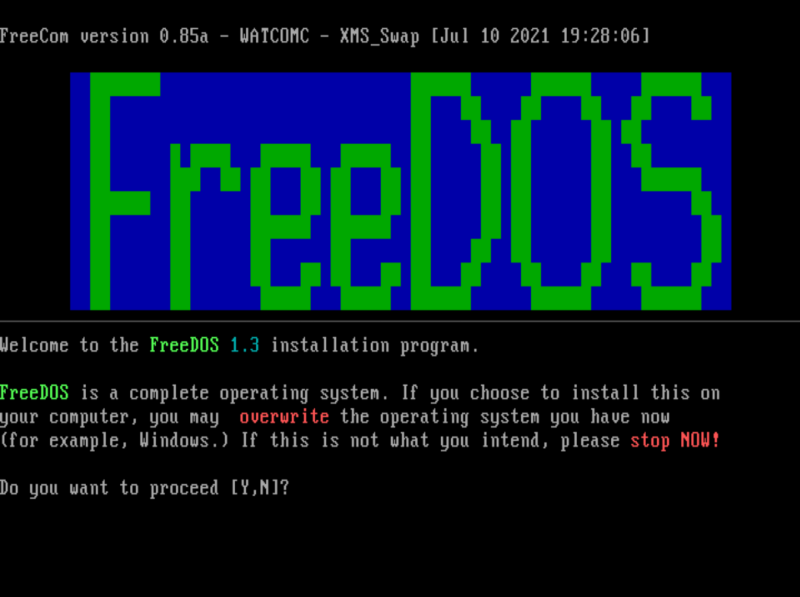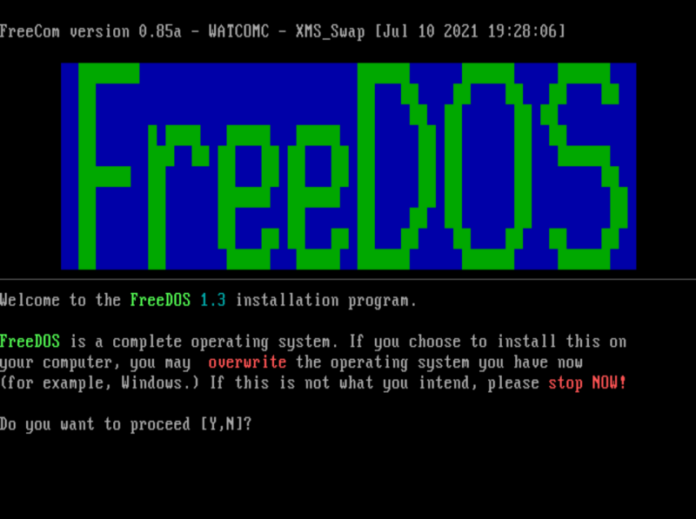
Enlarge / Preparing to install the floppy disk edition of FreeDOS 1.3 in a virtual machine. (credit: Andrew Cunningham)
Two big things happened in the world of text-based disk operating systems in June 1994.
The first is that Microsoft released MS-DOS version 6.22, the last version of its long-running operating system that would be sold to consumers as a standalone product. MS-DOS would continue to evolve for a few years after this, but only as an increasingly invisible loading mechanism for Windows.
The second was that a developer named Jim Hall wrote a post announcing something called “PD-DOS.” Unhappy with Windows 3.x and unexcited by the project we would come to know as Windows 95, Hall wanted to break ground on a new “public domain” version of DOS that could keep the traditional command-line interface alive as most of the world left it behind for more user-friendly but resource-intensive graphical user interfaces.
Read 25 remaining paragraphs | Comments
Ars Technica - All contentContinue reading/original-link]




